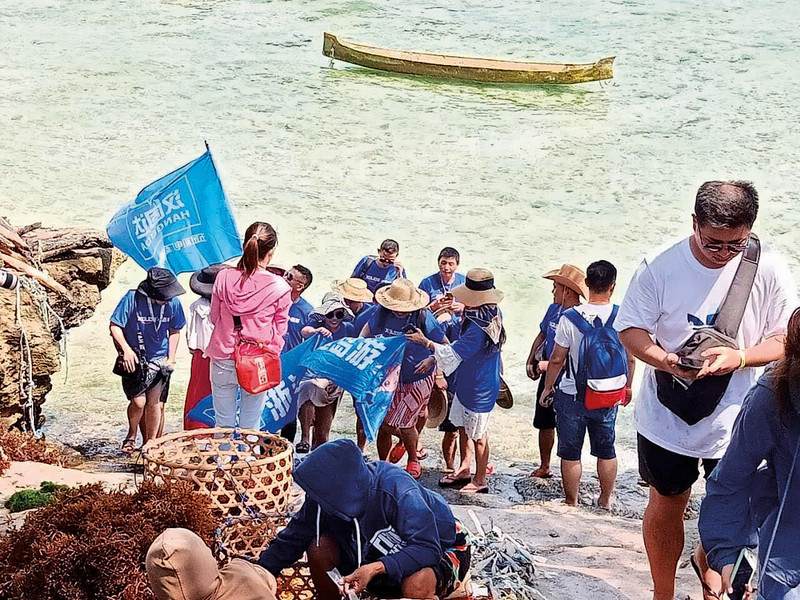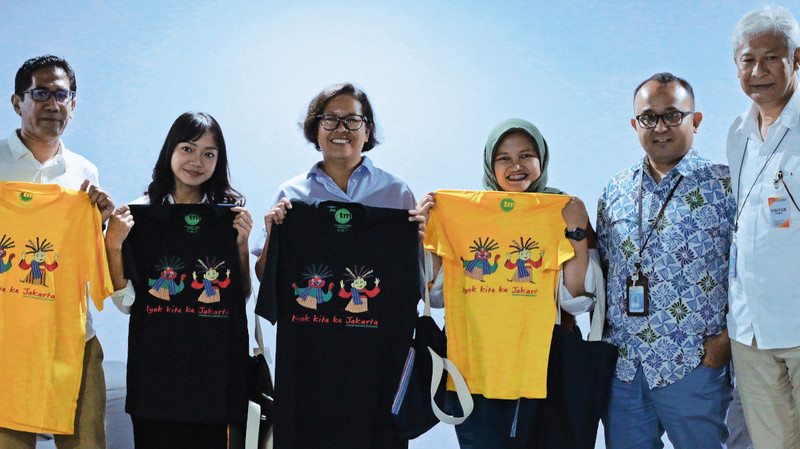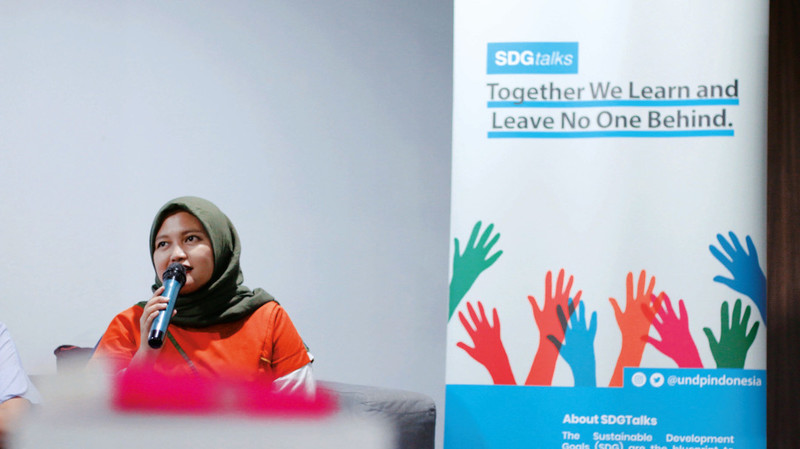
Tourism can be a double-edged sword for a country to a certain extent due to its advantages as well as disadvantages. And as travel becomes more mainstream, and tourism rise, it’s important to think about how we can be a responsible traveler and reduce negative impact on the planet.
UNDP Indonesia’s SDGs Talks Vol. 7 on 30 September highlighted crucial tourism industry issues to mark World Tourism Day on 27 September. The theme of the talks was Be a Responsible Traveller: Leave Nothing but Footprints, which packed discussions ranging from travel trends to raising the negative impact of tourism and responsibilities that can be given to create more benefits for society and the environment.

A popular industry making up many countries’ source of revenue, after depletion of natural resources, tourism serves many benefits not just for the travellers but also for local people participating in economic activities. Despite that, the downside of tourism has been a continuous subject. Over consumption, waste problems, and the exclusion of local communities from tourism activities are just some of the woes wrought by unsustainable practices within the industry. Tourism has also been blamed for wreaking havoc on the environment due to massive damage towards the ecosystem.
For instance, in Nusa Penida, Bali, one of the UNDP Indonesia’s GEF Small Grants Programme (GEF SGP) is working to fight environmental and social issues, along with other locations, such as Wakatobi in Southest Sulawesi and Semau Island in East Nusa Tenggara. According to Meinar Sapto Wulan on behalf of GEF SGP Indonesia, waste is a main issue in Nusa Penida. The tiny island contributes one-third of Bali’s 400 million tonnes of waste, most coming from tourism activities. And the rampant construction of accommodation centred near the coast made it difficult for the people residing on the hill of the island to get water. The worst problem is that the state drinking water company only supplies 26 per cent of the water. Besides that, the most striking social impact is that young people on the island are no longer interested in farming seaweed and choosing to work outside the island.

“The common practice is that the locals usually become a passive audience. In Bali, we see that 30 per cent of trash comes from the tourism sector. It can be used as an example of the need to protect and sustain the environment while travelling. That’s why GEF SGP Indonesia helps the island through waste management and waste bank program. We also empower local community to enhance seaweed production and woven fabric,” Meinar explained.
Miss Tourism Indonesia 2018 and Team Leader of Acceleration Millennial of Ministry of Tourism Republic Indonesia, Gabriella Patricia said that the youth of the current generation, commonly referred to as millennials, who need to be made aware of the importance of responsible travel. “Millennials tend to be aware of the public’s attention, especially on their social media accounts. Thus, their record of the entire experience —prior to the trip, the trip itself and after their trip—can help promote good practices.”
The behaviours of millennial travellers were also confirmed by renowned young traveller and influencer/Youtuber, Fathia Izzati who posts her travelling experience videos and shows concern on environment issues.
“I think young people are aware, for instance, about waste management. We need to be proactive and learn the dos and don’ts within places we visit. As for me, I like creating videos while travelling and when I participate in activities, so people can learn in a fun way through the videos I post on my social media,” Fathia conveyed.

Trinity Traveler, an established author who travels extensively as a hobby, also encourages youth to be more mindful of their social media posts about destinations they visit. She said there’s increased awareness about sustainable tourism among millennial travellers. It is precisely with the presence of social media that people become more concern with environmental issues. “It is beneficial from the social media side. In my era we couldn’t do that. Showing off but in a positive way,” Trinity said firmly.
Trinity, who pioneers affordable travelling, also added that the trend of travelling has changed. Being the first to arrive in a destination is no longer a trend. It’s more about being a responsible traveller who takes nothing but photographs, keeps nothing but memories and leaves nothing but footprints.
“There is no such thing as being the first person who posts or who visits the destination. Other people have been there too. Nowadays it comes down to being a responsible traveller. This is a trend that must be preserved, even enhanced,” Trinity said.
This article is originally from paper. Read NOW!Jakarta Magazine November 2019 issue “The Travel Issue”. Available at selected bookstores or SUBSCRIBE here.







